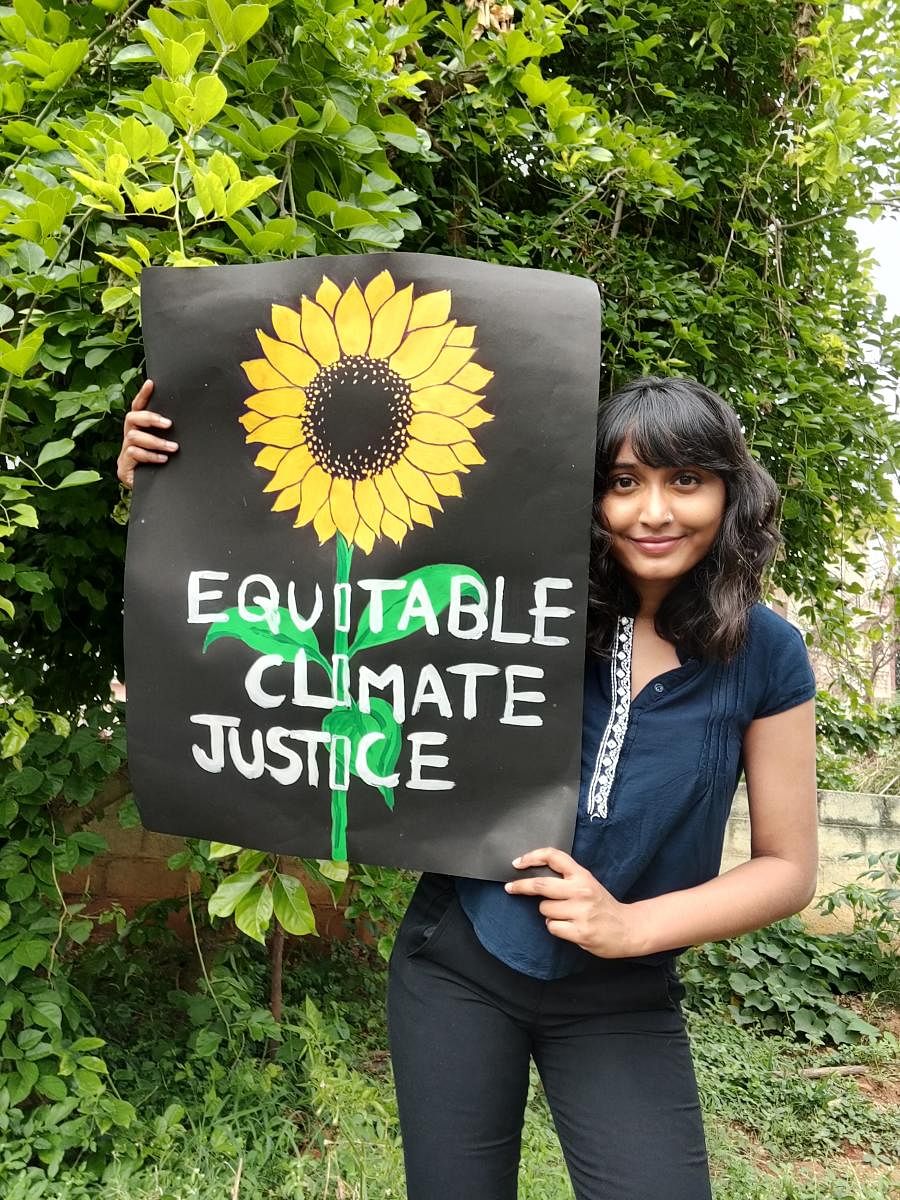
If Bengaluru activist Disha A Ravi hadn’t been in the dock in the ‘toolkit’ case, she would have been in Glasgow now, attending the CoP26 climate conference and engaging with world leaders.
“Delhi High Court has given me a No Objection Certificate to get a passport but the Bengaluru police has withheld my passport verification process,” the 23-year-old tells Metrolife why she can’t be at CoP26 even after “receiving an observer badge”.
Disha was granted bail on February 23, 10 days after the Delhi police arrested her for allegedly formulating and sharing a Google Doc file to drum up support for the farmers’ protests in the national capital.
The police are reportedly mulling a closure report as neither Google nor Zoom has responded to their queries. Disha declines to comment on this piece of news but admits living on bail is “scary”. “You are not fully free. This thought hangs there,” she says.
Disha is following the climate summit developments closely from Bengaluru. Three members of the India chapter of Fridays For Future, of which she is a founder, will participate in this high-profile UN event in the coming days.
“They include Sriranjini Raman from Bengaluru who studies in Canada, and two students of the Adivasi community from Chattisgarh, Alice Barwa and Shubham Tigga,” she says.
Disha’s team was still preparing a list of demands for the team to put forth at CoP26 when Metrolife called.
These young activists would like the world leaders to acknowledge their failures, allocate budgets and create effective policies to counter climate change.
An analysis by UN Framework Convention on Climate Change (UNFCCC) puts their concern in perspective — carbon emissions may rise by 16% by 2030 when they should ideally come down by 45% to keep global warming within 1.5°C.
“Who would have thought it was realistic to make (Covid) vaccines within a year?” Disha asks, decrying the absence of urgency to mitigate the climate
crisis.
Some are hailing India’s CoP26 pledge that it will reach net zero emissions by 2070, but Disha is not one of them. “Net zero is a glorified version of carbon offsets. It’s ineffective,” she says.
How is India going to achieve this target when it is diluting environment norms, felling trees in eco-sensitive
areas, and opening coal mines (considered the biggest polluter), Disha wonders.
Disha volunteers for social justice and environmental causes because she has seen her grandparents grapple with the water crisis as farmers near Tumakuru.
‘In custody, I asked myself questions’
Has the arrests of youth leaders like Disha made activists in India more cautious?
“Not really. We haven’t done anything illegal, so we don’t feel the need to take (extra) precautions. We have always used safer modes of communication (like Telegram, Signal) and we take digital privacy seriously,” she speaks about her group. Has the incarceration dented her resolve for climate action? “The first few days in custody, I did ask myself what’s the need to do this. But the more time I spent in jail, the more I realised it was necessary,” she says. However, she has mixed feelings about how her social media following has shot up, bringing with it trolls too. “I feel annoyed but also grateful. I never wanted to be in the public eye. I was happy living and working in my bubble,” she says. Now her arrest has become a strong commentary against state oppression. Last month, ahead of the launch of CoP26, Guardian Weekend magazine featured her alongside 19 others arrested for trying to save the planet. The world leaders are not just negotiating climate rules but also deciding who gets to live and how, she says. “We (youngsters) are being thrown under the bus, especially those who are living in the global south. So why should we not be angry?” she asks.
Not an easy fight
The climate crisis has activists working round the clock and it is tiring, says Disha. “People don’t realise that we have lives outside of activism, and we don’t want to worry about the world coming to an end all the time,” says Disha, who is a blog writer for a company in the sustainability space.
“And no, we aren’t paid for activism or tweeting,” she busts a myth she hears often.